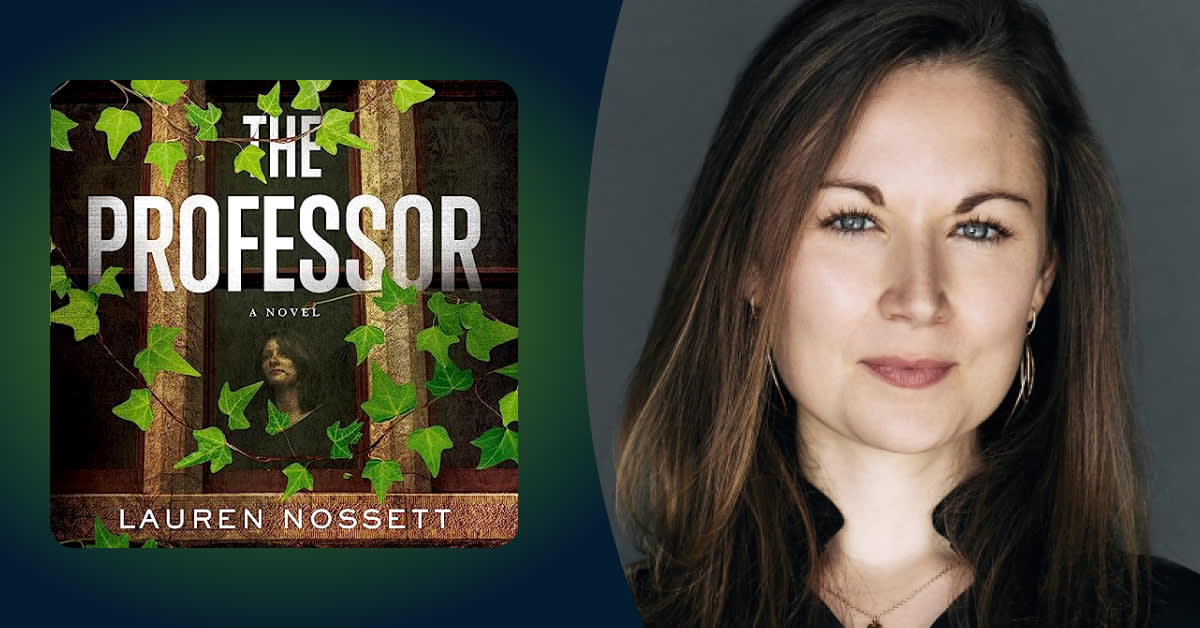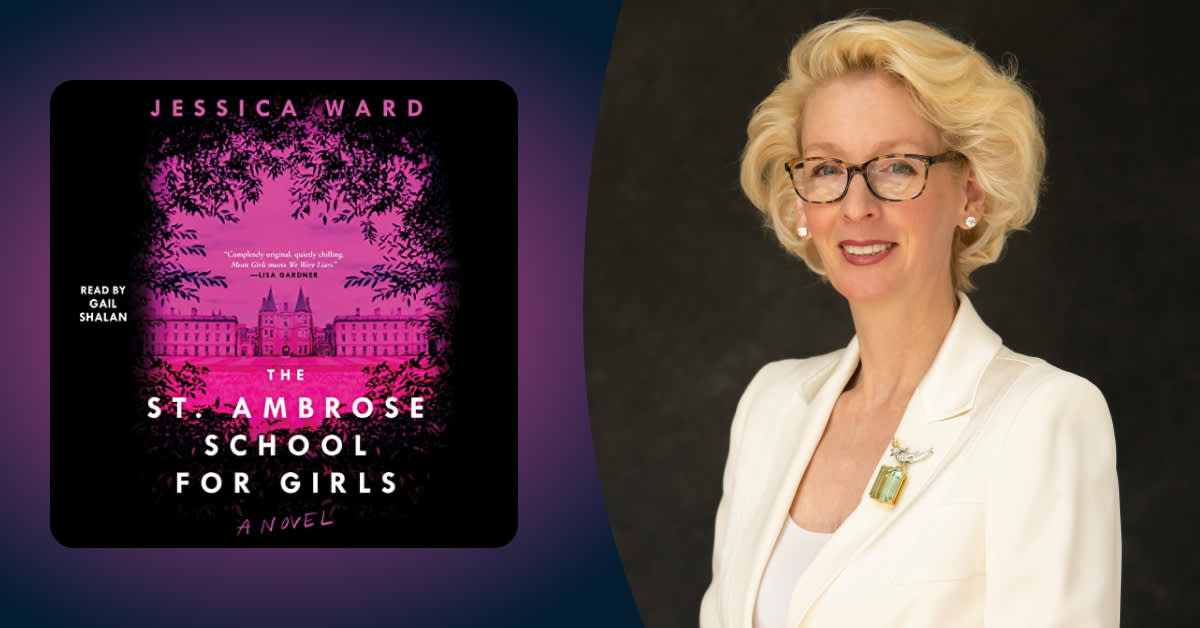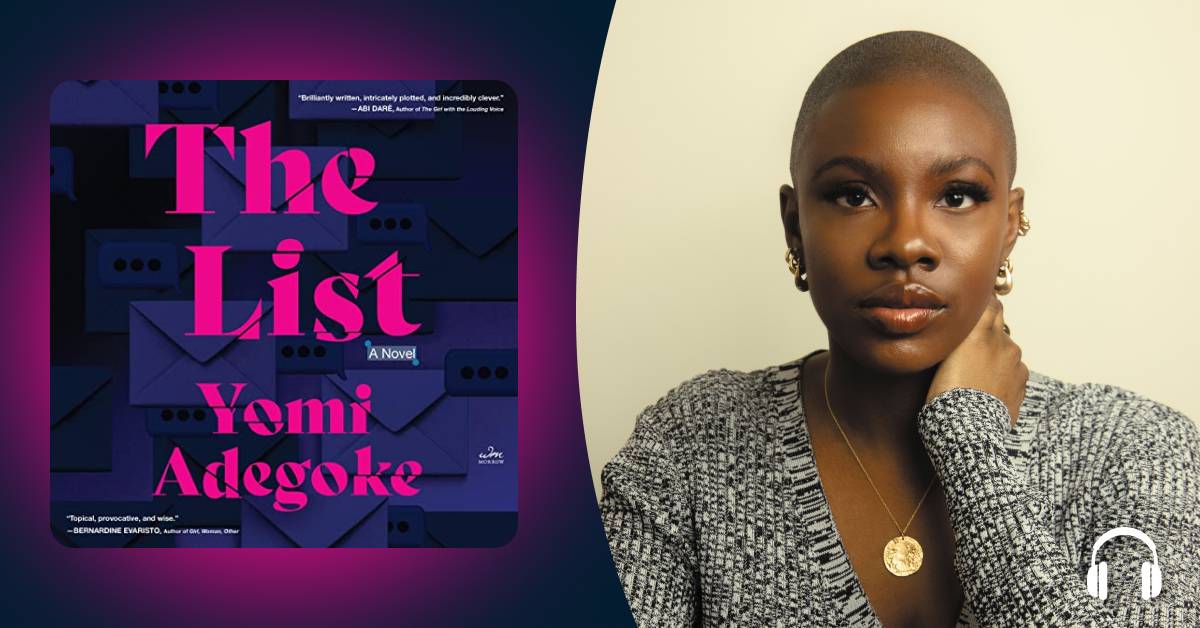Lauren Nossett's new mystery is centered on the scandal that ensues when student Ethan Haddock is found dead from an apparent suicide—and his professor and purported lover, Dr. Verena Sobek, is taken in for questioning. For The Professor, Nossett brings back the winning duo from her debut The Resemblance—narrator Saskia Maarleveld and the character of Marlitt Kaplan, a retired detective. Here, she answers our questions about her new audiobook.
Nicole Ransome: The Professor touches on some of the intricacies of the power dynamics in college when a student is found dead from an alleged suicide. What inspired you to write this story?
Lauren Nossett: I wrote The Professor while I was teaching at a small liberal arts college in Virginia. And although the mystery at the core of the novel is entirely my invention, many of the scenes at the university were inspired by my interactions with students and my growing concern for their well-being as they showed signs of increasing anxiety and alienation. My colleagues were struggling from burnout and, like the students, were juggling all the complexities of modern life—loss of loved ones, sickness, breakups, depression—while managing paper deadlines and presentation nerves and distance from their support systems.
There’s a metaphor in the book about the professor being like the person who jumps into the river to save a drowning man only to realize she herself can’t swim. I was interested in the idea of a professor who wants to help but is perhaps no better prepared to deal with life’s complexities than the students themselves.
The story is told from the perspective of Marlitt Kaplan, a retired detective called upon to look into Ethan’s case. What challenges or surprises did you experience in writing from her POV while tackling this subject and setting?
Marlitt Kaplan is a retired detective, but she’s also the daughter of a professor, which gives her a unique lens to explore campus life. Growing up in a college town, she has an insight to the university that the other police officers don’t have—yet, now that she’s left the force, she lacks their resources. This was the biggest challenge of writing from her POV. She no longer has access to lab reports or crime scenes and therefore has to become inventive in how she gathers information, which leads her to take more risks and get closer to the victim’s life than she ever has before.
In today’s world where MeToo and HimToo movements are being discussed and paid much closer attention, what lesson and/or message do you want listeners to take with them while listening to The Professor?
In The Professor, Marlitt is asked to clear the name of one of her mother’s colleagues, who’s been accused of having an inappropriate relationship with a student after his death. The media runs the story with little knowledge of the evidence, and everyone—students, locals, faculty, and administrators alike—forms their own opinion. At the heart of the novel is an investigation into the systems that fail their most vulnerable members by not hearing their stories. Marlitt takes the time to listen.
What was your favorite part about writing this story?
I lived in Athens, Georgia, for six years, while both a student and an instructor at the University of Georgia. It’s the place where I met my late husband, where my sister and I lived together for a time, where I met lovely friends, drank endless cups of coffee, and saw amazing live music. But when I wrote the novel, I was living in Richmond, Virginia, so writing this story was a chance to revisit Athens and the university’s historic campus and to highlight so many things I love about the city and its atmosphere.
Do you feel the audio performance affects the impact of the story in any way?
Absolutely. Audio narrators breathe life into the words on the page. Their voices immerse listeners in the world of the story and add to the magic of the experience.






